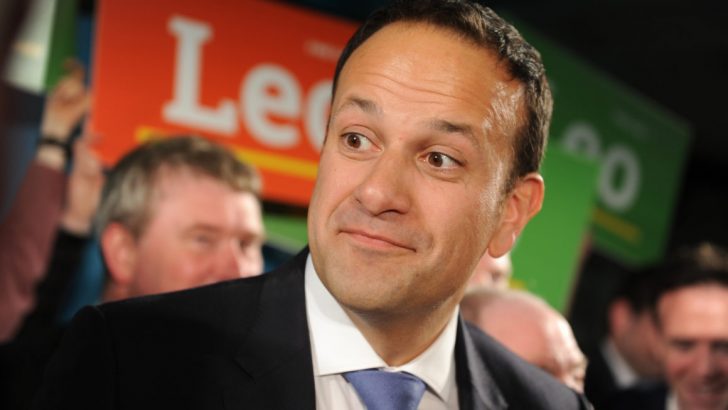Taoiseach Leo Varadkar has said that religion will continue to play an important role in Irish society in the future.
In a carefully-worded speech to welcome the Pope to Dublin Castle, Mr Varadkar also said he hoped that the Pope would soon be able to cross the border and make a visit to the North.
The Taoiseach said he believed that “the time has now come for us to build a new relationship between Church and State in Ireland – a new covenant for the 21st Century.
“It is my hope that your visit marks the opening of a new chapter in the relationship between Ireland and the Catholic Church,” Mr Varadkar said.
Referring to some of the main concerns of Francis’ papacy, Mr Varadkar said “we thank you for your care for the earth, for emphasising the urgent challenge of climate change, and for reminding us of our responsibilities.
“We thank you for the empathy you have shown for the poor, for migrants, and for refugees,” he said.
Referring to clerical abuse, Mr Varadkar referred to ‘dark aspects’ of the Church’s history. “We think of the words of the Psalm which tells us that ‘children are a heritage from the Lord’ and we remember the way the failures of both Church and State and wider society created a bitter and broken heritage for so many, leaving a legacy of pain and suffering”.
Mr Varadkar said that “in place of Christian charity, forgiveness and compassion, far too often there was judgement, severity and cruelty, in particular, towards women and children and those on the margins”.
He pointed to Magdalene Laundries, Mother and Baby Homes, industrial schools, illegal adoptions and clerical child abuse are “stains on our State, our society and also the Catholic Church”.
He said that “wounds are still open and there is much to be done to bring about justice and truth and healing for victims and survivors”.
He appealed to the Pope to “use your office and influence to ensure this is done here in Ireland and across the World.
“Above all, Holy Father, I ask to you to listen to the victims,” Mr Varadkar said.
On the wider context, Mr Varadkar recalled how Christian faith has continued to inspire Irish people for centuries. “Both the 1916 Proclamation of Independence and the Constitution invoke God in their opening lines…the Catholic Church has always helped us to understand that we are citizens of a wider world and part of a global family.
“Our brave missionary priests and nuns provided an education to many around the world, and helped the sick, the poor and the vulnerable. Today our UN peacekeepers and our international development workers around the world follow in that proud tradition, and charities like Trócaire and Concern help those who suffer from famine today, and also refugees.
“People of profound Christian faith provided education to our children when the State did not, in the open air next to hedgerows and in the schools and educational institutions they built. They founded our oldest hospitals, staffed them, and provided welfare for so many of our people,” he said.
Referring to controversial issues like divorce, abortion and same-sex marriage, the Taoiseach told that Pope “we have voted in our parliament and by referendum to modernise our laws – understanding that marriages do not always work, that women should make their own decisions, and that families come in many forms including those headed by a grandparent, lone parent or same-sex parents or parents who are divorced”.
Outlining his vision for a new relationship between Church and State, Mr Varadkar said that “building on our intertwined history, and learning from our shared mistakes, it can be one in which religion is no longer at the centre of our society, but in which it still has an important place.
“One with greater diversity and choice when it comes to the patronage of our schools – and where publicly-funded hospitals are imbued with a civic and scientific ethos.
“Ireland is a different country than it was 39 years ago. Modern Ireland is still a country with faith and spirit and values.
“Family, community, enterprise, social justice, diversity, openness and internationalism, equality before the law, and individual liberty -these values describe the Republic we aspire to be,” he said.
Taoiseach outlines new vision for Church State relations
 An Taoiseach Leo Varadkar
An Taoiseach Leo Varadkar 

